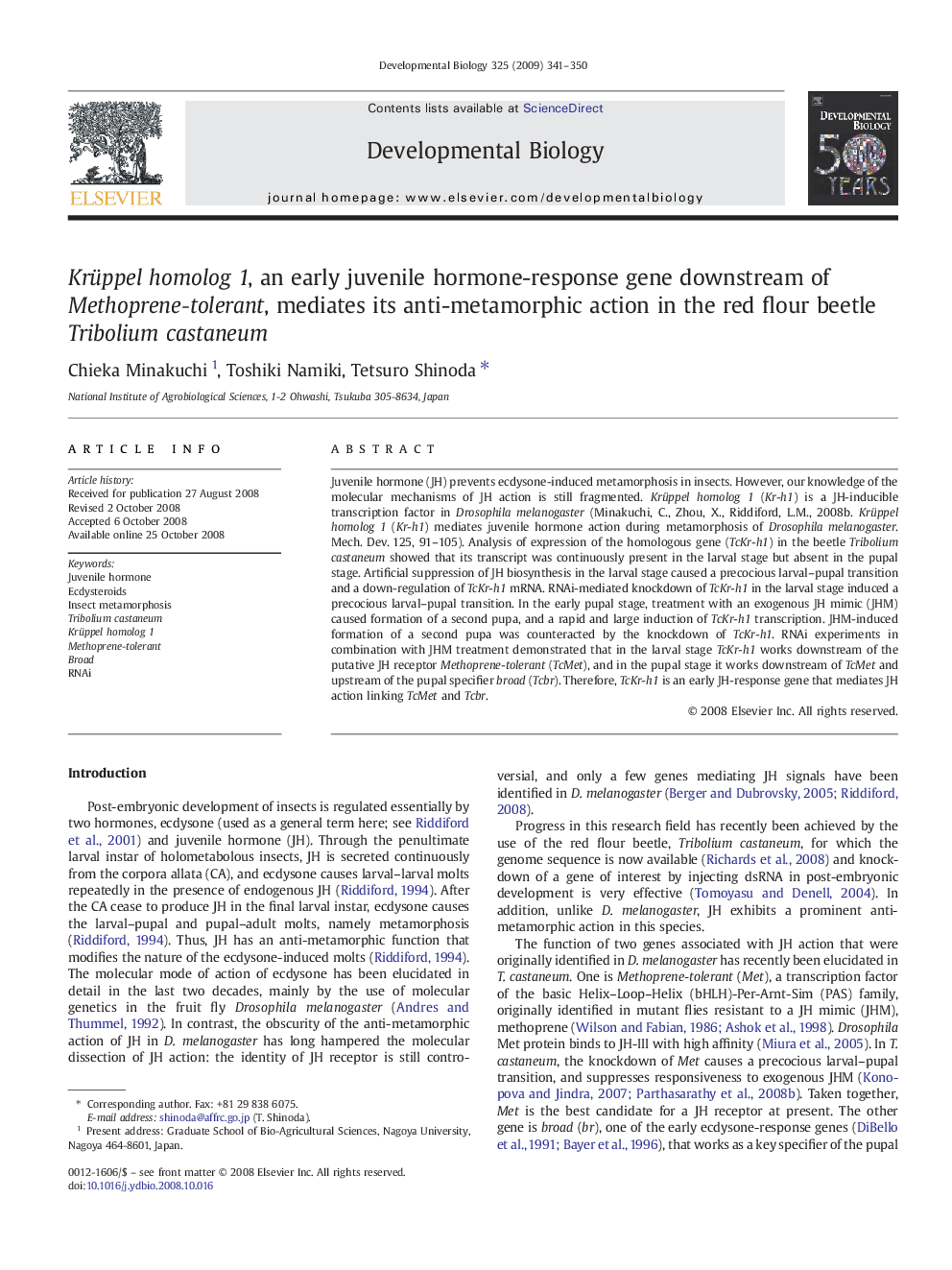| Article ID | Journal | Published Year | Pages | File Type |
|---|---|---|---|---|
| 2174342 | Developmental Biology | 2009 | 10 Pages |
Juvenile hormone (JH) prevents ecdysone-induced metamorphosis in insects. However, our knowledge of the molecular mechanisms of JH action is still fragmented. Krüppel homolog 1 (Kr-h1) is a JH-inducible transcription factor in Drosophila melanogaster (Minakuchi, C., Zhou, X., Riddiford, L.M., 2008b. Krüppel homolog 1 (Kr-h1) mediates juvenile hormone action during metamorphosis of Drosophila melanogaster. Mech. Dev. 125, 91–105). Analysis of expression of the homologous gene (TcKr-h1) in the beetle Tribolium castaneum showed that its transcript was continuously present in the larval stage but absent in the pupal stage. Artificial suppression of JH biosynthesis in the larval stage caused a precocious larval–pupal transition and a down-regulation of TcKr-h1 mRNA. RNAi-mediated knockdown of TcKr-h1 in the larval stage induced a precocious larval–pupal transition. In the early pupal stage, treatment with an exogenous JH mimic (JHM) caused formation of a second pupa, and a rapid and large induction of TcKr-h1 transcription. JHM-induced formation of a second pupa was counteracted by the knockdown of TcKr-h1. RNAi experiments in combination with JHM treatment demonstrated that in the larval stage TcKr-h1 works downstream of the putative JH receptor Methoprene-tolerant (TcMet), and in the pupal stage it works downstream of TcMet and upstream of the pupal specifier broad (Tcbr). Therefore, TcKr-h1 is an early JH-response gene that mediates JH action linking TcMet and Tcbr.
